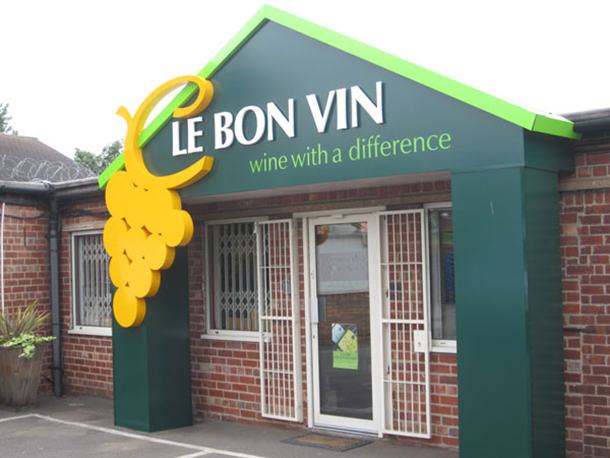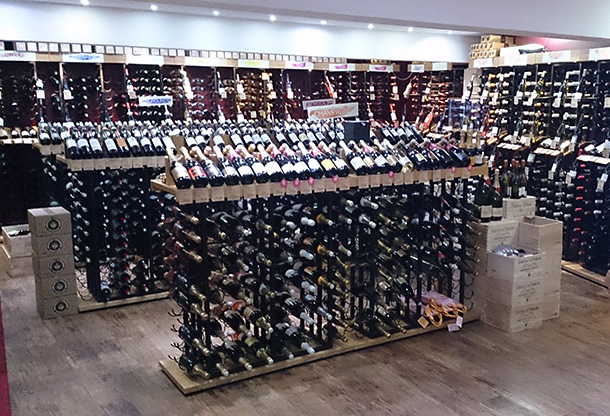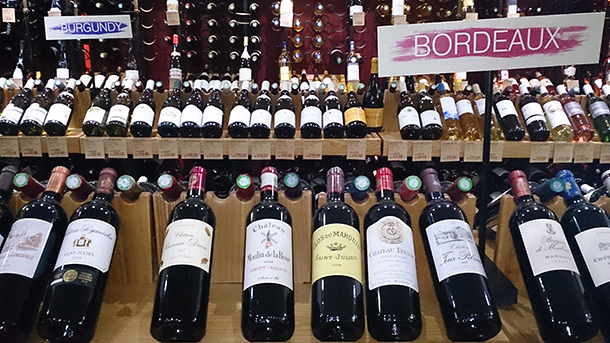
Wine with a Difference.
340 Brightside Lane
Sheffield
S9 2SP
0114 2560 090 / lebonvin.co.uk
Interview by James Lock.
The independent wine merchant is an increasingly rare breed. Most people will buy their wine from supermarkets this Christmas with no informed advice from staff, no awareness of the process of production and ultimately no real idea of value for money. There is an alternative.
I recently interviewed Patrick Jouan, managing director of Le Bon Vin, to find out a little bit more about the wine industry, his own business and recommendations for purchases ahead of the Christmas rush. Assuming of course that ‘objectivity’ is beyond the human psyche, I’ll say now I can’t recommend strongly enough heading over to Le Bon Vin, located on Brightside Lane on the way to Meadowhell. Value for money does not mean the cheapest option. As Patrick might say, ‘trust in your wine merchant’. I would say, first go and meet them.
Tell me about the inspired beginnings of Le Bon Vin in Sheffield?
We started in 1986, from humble beginnings, working from home, and then a few years later I took on a business partner. Things have been going from strength to strength and we now employ 22 people.
Where does your love of wine come?
Probably from my family. My grandfather was a wine merchant back in France in the 1950s and I’ve always been in contact with wines from a young age.
Do you sell the majority of your wines online?
Restaurant trade is still the majority of our business. The retail shop is also growing all the time, largely due to the poorly discounted wines you can buy in supermarkets. A wine discounted to £5 in a supermarket should really be discounted to around £3.99 if you were looking for value for money. At Le Bon Vin we have discounts all year round. We don’t discount at Christmas for just one week in the year. In fact we often have the lowest price in the UK for well-known brands.

I’m aware that you have a range of other alcoholic beverages available for purchase as well. How do you select those?
We sell wine and champagne but we also do liquors and ciders as well as some premium beers from France. We import the liquors from all over Europe, largely from a company near Venice called Bottega. They are a very fashionable brand and taste good without being too expensive. Their best grappa often has something unusual in it like chocolate or lemon as well.
I hear on the grape vine (oh yes) that you have a particular love of French wine. Can you tell us a little about how that came about?
I just believe in the French wines and the Italian wines. Both of them have just got it right. I know more of the French of course and I’m talking to wine producers all over France. They are very keen to give the customer a product which is genuinely well made. The majority of decent producers coming out of France make genuine quality produce. They are not full of chemicals. It’s not the volume they are interested in, like so many other parts of the world, but quality.
It’s easy to produce a lot of wine in one hectare by adding a lot of chemicals, but respecting all that is natural from the land is what’s important. A bottle of wine should be made as naturally as possible and that’s what a lot of wine makers around the world are forgetting. They produce more to make it cheaper. The only way we will have a decent quality wine is by producing quality ingredients. Everything has to be clean with no hidden chemicals.
It’s scary in some parts of the world. I would not want to name a country in particular, but the amount of chemicals used, particularly in factory produced wine that is sold direct to supermarkets. The wine maker should in a sense do the bare minimum to the wine. They are a keeper, a person who looks after the grape, who lets the root go deep into the soil. In France you can have a root that goes down to 15 metres. In other parts of the world like Australia you will have a vine which is rooted no deeper than 30cm. This is not wine anymore and is often dangerous for the human body.
At Le Bon Vin this is the most important thing to me. It has to be made by producers who respect the natural way of growing the vine. Organic is great, but sometimes you don’t get a wine that tastes like the wine of the region from which it has been made. A Muscat should taste like a Muscat. What’s most important is trusting your wine merchant, which the French are very good at. There is a better relationship between the merchant and the customer, where the customer feels confident to ask the merchant their opinion on the wines. The customer in France is less interested in the brand and more interested in whether that particular wine maker is making a decent quality product.

That’s an Interesting comparison to the British style of purchasing wine, which is largely through supermarkets whose staff are often ill-informed.
Yes, informing the customer is paramount. The price of wine doesn’t have to be expensive. We start at £5.50 and we have around 60-70 wines which are between the price of £5.50 and £7, which is what you should be spending for everyday wines.
The connoisseur will always know his wines, but the general public tend to buy on price or recommendation and often use big corporate retailers. Who are the independent wine merchant’s customers and how can you compete with the big boys?
We are growing all the time. It comes down to what the customer wants to drink. They have to look at the quality and we fit in by providing better quality wines than at the supermarket at affordable prices. So for me it all comes down to what it tastes like. Don’t buy wine from supermarkets because it’s easy. Make that effort to visit us once and you will see a difference in your glass.
By the way there is never a bad vintage from France and Italy, just different opinions. Often it comes down to things like when are you going to drink it – in a week, in a month, in a year? What are you having it with?
How do you rate the very new wine countries, like Turkey, Israel, and old Soviet bloc nations?
I don’t know very much about those wines. I’d like to introduce some of their wines going forward, but we do already have around 800 bottles of wine in store. We have some good Lebanese wines, which we have been importing direct, though it is difficult to market them. We used to import Tunisian wines though we are now slowing this down as customers are often interested in certain ranges, particularly the Italian, the French and the Chilean wines.
How have duty changes over the last few years affected the wine business?
On a bottle of wine you’re talking £2.20 not including the VAT, which is added to the duty. After that you have the VAT on the wine sale itself. The duty is essentially a double tax.
Now we can’t go back to 50 years ago, when there was no duty. The UK is a drinking nation and we’ve got to get our tax from somewhere. But what I would say is that the duty is so high that year after year we have around another 10% tax added to it. It’s becoming impossible to have value wines at £5 anymore in this country. I would say if you were to buy a bottle of wine these days I’d start at £6-8, but again I don’t trust the supermarkets, because a £6 from them, because of how they price it, would mean you’re unlikely to get value for money.
